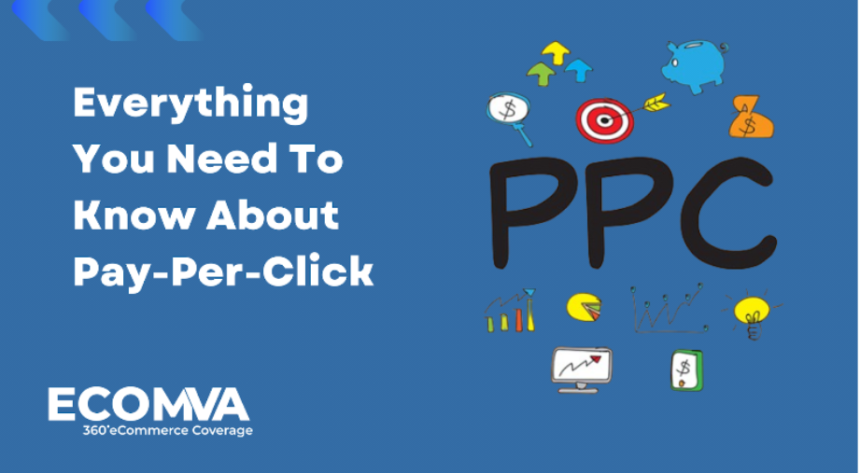May I ask small business owners to let’s just be frank with each other? How much out of 10 would you rate your knowledge about the world of Pay-Per-Click advertising? And do you think you have what it takes to initiate and follow through with a powerful PPC campaign?
Potential clients may be looking for precisely what your company provides online. But the question remains: How can you be sure your website does not get lost in the never-ending search results list? While SEO can assist you hit the 1st rank in search engine results, it also takes time before any noticeable effects are seen.
On the other hand, Pay-Per-Click (PPC) advertising is one of the finest ways to reach potential customers who are already looking for what you sell (that too a bit quickly!). Hence, PPC services can drive online businesses, increase brand recognition, and boost conversion rates.
If you want to have a good grip on PPC, this blog is all you need to know everything. The essentials will be covered, the benefits shown, and the decision factors will be presented for you to determine whether pay-per-click ads are indeed the most useful strategy for your business online.
How Does PPC Work?
Consider PPC as a virtual auction platform. You place a bid on particular keywords–terms that consumers use to find products and services. Your advertisement can appear at the first rank in the search engine results page (SERP) or on other websites when someone searches for a term you bid on.
The key players are as follows:
- Advertiser: This is you, the entrepreneur, trying to connect with possible clients.
- Publisher: This might be an advertisement-displaying website or a search engine like Google or Bing.
- User (the Searcher): Someone actively looking for anything online is your ideal client.
PPC is fantastic because it is targeted. Assume you have a handmade pottery business. You would not want to see your advertisement appear for queries including “plastic cups,” would you? Rather, you would place a bid on terms like “buy pottery online” or “unique ceramic mugs.”
This raises the likelihood of conversion—someone performing the desired action, like visiting your website or completing a purchase—by ensuring that your advertisement is seen by those interested in your offer.
Here’s a simple example:
- You place a bid for “buy handmade mugs.”
- If someone looks for “buy handmade mugs,” your advertisement will appear above the naturally occurring search results.
- You will be charged a small fee if the user clicks on it. (The “pay-per-click” part).
- Ideally, the customer comes to your website, buys something, and closes the transaction!
Why should you consider PPC for your business?
-
Fast results
In contrast to e-commerce SEO services, which require time to provide results, PPC can drive visitors to your website in a matter of hours. This is perfect for companies searching for a quicker approach to draw clients.
-
Targeted reach
PPC, as opposed to traditional advertising techniques, enables you to concentrate all your efforts on prospective clients actively looking for what you have to offer. Higher targeting precision and improved Return On Investment (ROI) are the end results.
-
Measurable results
You can monitor your campaigns’ success in great detail using PPC. The number of people who viewed your advertisement clicked on it, and became customers is visible to you. With the use of this data, you can maximize your advertising budget and improve campaign performance.
-
Increased brand awareness
Users’ exposure to your advertisement over time can raise their familiarity and brand awareness even if they choose not to click on it immediately. In the long run, this can be advantageous for growth.
For a stronger brand presence, hiring PPC specialists can help create targeted campaigns that maximize exposure and engagement.
-
Flexibility and control
Just like Amazon SEO services, your PPC campaigns are entirely under your control. Budgetary restrictions, targeted demographics, and performance-based bid adjustments are available. With this degree of adaptability, you can customize your campaigns to meet your unique business objectives.
What are the types of PPC campaigns?
-
Search Engine Advertising (SEA)
This is the most common type of PPC, where your ads show up on search engine results pages (SERPs). Examples include Google Ads and Microsoft Advertising.
-
Display Advertising
These are banner ads that show up on websites across the internet. They can be a great way to reach a broader audience and build brand awareness.
-
Social Media Advertising
Most social media sites like Instagram, Facebook, and LinkedIn offer PPC advertising options. This allows you to target users according to their demographics, interests, and online behavior.
-
Shopping Ads
These product-focused ads display product images, prices, and merchant information directly on search engine results pages and other online platforms.
Which are the major PPC platforms?
-
Google Ads
Google AdWords is one of the most widely used PPC platforms. This advertising platform allows you to publish picture or video ads on Display Networks in addition to PPC on its search partner sites and Search Network. It provides YouTube advertising as well.
-
Microsoft Advertising
Microsoft Advertising, formerly known as Bing Ads, is an advertising platform that enables customers to promote their PPC campaigns on Yahoo and its Search Network Bing.com. Additionally, it provides consumers with more native advertising possibilities on Microsoft-owned Web domains like MSN.
-
Amazon advertising
Amazon is one of the PPC providers in the e-commerce industry with the quickest growth rate. Users of this e-commerce PPC platform can design campaigns with a shopping theme. The campaigns are then shown to many users on Amazon’s shopping network to advertise the products they wish to sell.
How to get started with PPC?
-
Define your goals
What are your goals with PPC advertising? A rise in revenue, online traffic, or awareness of the brand? Clearly identify your objectives to measure success.
-
Do your keyword research
Determine the terms that people in your target market are most likely to use to find similar products or services. For this, resources like Google Keyword Planner can be useful.
-
Choose your PPC platform
Select the platform that meets your needs. The most widely used search engine advertising option is Google Ads, but many more targeting possibilities are available on social media websites like Facebook and Instagram.
-
Set your budget
Establish the budget that you are comfortable with for your PPC advertising. Remember that you can always change your budget afterwards.
-
Create compelling ads
Create clear, concise, and visually appealing ad copy that emphasizes the advantages of your products or service. You can get help from PPC management services to make your ads more effective.
-
Track your results
Check how well your campaigns are doing. Examine data like impressions, clicks, and conversions. Use this data to determine what is effective and what requires improvement.
At the end!
Although a well-thought-out PPC marketing strategy is essential, making sure your website offers an excellent user experience is even more crucial. Like any other area of digital marketing, PPC is always changing, but because of its numerous advantages, it is worthwhile to become familiar with its nuances.
For the best results, you should consult PPC management services.


